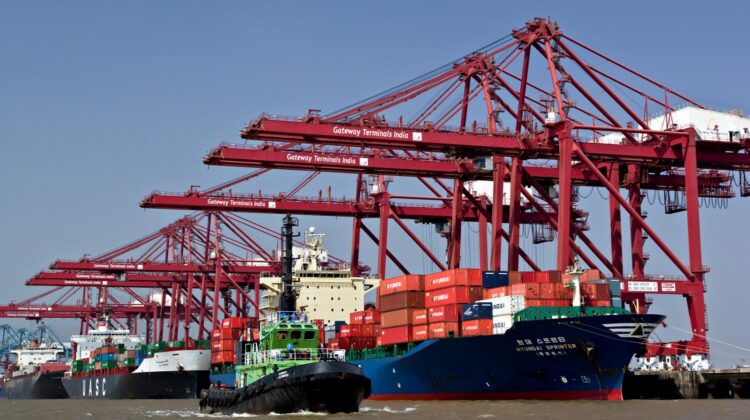
APM Terminals partners with Siemens for energy optimisation and emission reduction at terminals

MUMBAI : Collaboration between APM Terminals and Siemens Limited, India, has identified a potential 30-40% emissions reduction at Gateway Terminals India. The companies will now work on further energy optimisation and emission reduction programmes across its terminals portfolio globally, as a significant step on its ambitious decarbonisation journey.
Operated by APM Terminals, Gateway Terminals India (GTI) is one of the busiest container terminals in the country, handling 2 million TEUs (twenty-foot equivalent units) per year and 10% of India’s container trade. One of the baseline requirements for such large scale operations is high energy consumption. The terminal utilises a combination of diesel and electric powered equipment and in 2020 alone, it consumed 5.8 million litres of diesel and 25 Giga Watt hours of electricity, resulting in an emission of 66,847 tonnes of CO2 in Scope 1 (fuel-based) and 84,429 tonnes of CO2 in Scope 2 (emissions from the generation of purchased electricity).
To address this and find scalable and efficient solutions for reducing these emissions, APM Terminals Mumbai (GTI) engaged Siemens for a pilot project aimed at establishing the baseline of GTI’s energy consumption patterns through continuous measurement of all energy consumers, as well as defining, verifying and later implementing possible energy optimization measures. Known as Facility Improvement Measures (FIM), they would also entail verification of actual energy consumption, as well as emission reduction achieved.
“As a major logistics player in India, we are conscious of our carbon footprint, but also of our responsibility for finding all possible ways of reducing them,” says Girish Aggarwal, Chief Operating Officer at APM Terminals Mumbai (GTI). “The partnership with Siemens allows us to successfully address this issue not only at GTI, but also convert it into a scalable solution for implementation in other terminals.”
In addition, the pilot will utilise Siemens’ digital platform solution, including integration into APM Terminals’ IT and digital architecture and compliance with terminal operator’s IT, Cyber Security and data requirements. Siemens’ technologies include microgrid solution, energy efficiency analytics and integration of renewables.
Robert H K Demann, Head, Smart Infrastructure, Siemens Limited, said, “Siemens is delighted to partner with Gateway Terminal India on this project. Our aim is to empower our customers in their digital transformation and achieving their sustainability goals. Siemens’ technologies will contribute to GTI achieving their targets of decarbonization, reduced greenhouse gas emissions and energy efficiency.”
Significant emission reduction
The pilot identified four main Facility Improvement Measures or focus areas for decarbonisation. Transformer optimisation will help reduce energy loss by intelligently switching the transformers. Rubber tyred gantry (RTG) hybridisation (replacement of conventional diesel engines with batteries) will help save fuel. Optimising reefer facilities will reduce energy peek and demand, improve reliability and increase flexibility. Finally, implementing local solar photovoltaic (PV) infrastructure will provide the terminal with more clean energy, reduce grid supply and peaks, and bring additional flexibility to energy sourcing.
Based on the initial learnings, APM Terminals and Siemens estimate that proposed measures should help emission reduction of ~40% on Scope 1 emissions (fuel) and 16%-20% on Scope 2 emissions (from purchased electricity) at GTI.
Scalable solution
As the next step, APM Terminals will roll out terminal-specific improvement measures across a wider portfolio of terminals globally, with the aim of achieving similar emission reduction in other locations.
With energy consumption optimisation and green energy sourcing being the pillars, alongside electrification, of APM Terminals’ decarbonisation roadmap, the Mumbai pilot will soon become a scalable solution globally, significantly strengthening the company’s decarbonisation efforts.


